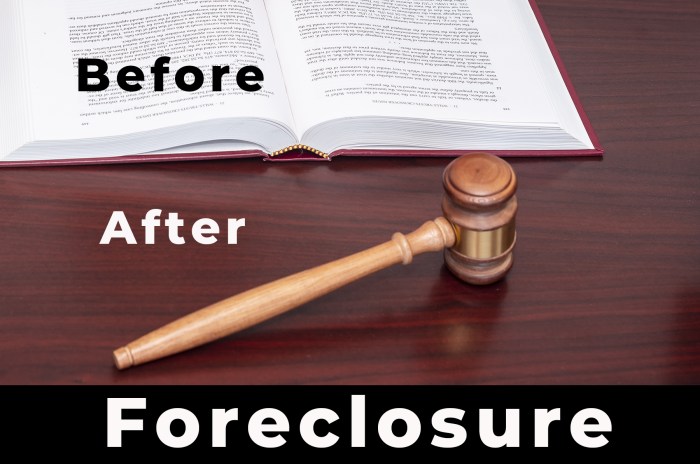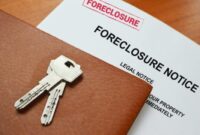When it comes to foreclosure laws for manufactured homes, homeowners face a unique set of challenges and protections. Since manufactured homes fall somewhere between real property and personal property, the laws and rights regarding foreclosure can vary significantly depending on the state and whether the home is attached to a foundation or situated on rented land. This article will explain the basics of foreclosure laws, how they specifically apply to manufactured homes, and provide actionable advice for homeowners navigating potential foreclosure situations.
What is a Manufactured Home?
Manufactured homes, also known as mobile homes, are factory-built houses transported to a property, either for placement on a foundation or for use on rented land in a mobile home park. While they offer a more affordable housing option, these homes can present unique legal issues when it comes to foreclosure.
Foreclosure laws for manufactured homes are affected by whether the home is classified as real property or personal property:
- Real Property: A manufactured home that is permanently attached to land (usually through a foundation) is generally considered real property. This classification can change the legal process for foreclosure, often involving similar regulations to standard home mortgages.
- Personal Property: A manufactured home that is not permanently attached to land, such as those in mobile home parks, is typically classified as personal property. Foreclosure laws in this case align more closely with repossession laws than traditional foreclosure laws.
Understanding the classification of your manufactured home is crucial in determining which foreclosure laws apply to your situation.
How Does Foreclosure Work for Manufactured Homes?
The foreclosure process for manufactured homes differs based on whether the property is financed through a traditional mortgage or a chattel loan. Each financing type has distinct rules that influence the foreclosure proceedings.
1. Traditional Mortgage Loans on Manufactured Homes
A traditional mortgage is commonly used when a manufactured home is affixed to a foundation on privately owned land. Foreclosure for these loans generally follows the same procedures as it would for standard homes.
The lender must:
- Provide notice to the homeowner of impending foreclosure proceedings.
- Follow state-specific laws to ensure a fair foreclosure process.
- Allow the homeowner time to cure the loan (or make up missed payments) before foreclosure is finalized.
Traditional mortgages provide more legal protections for homeowners due to their classification as real property.
2. Chattel Loans on Manufactured Homes
When manufactured homes are not attached to land, they are often financed through chattel loans, which are loans for movable personal property. This type of loan is commonly used for homes in mobile home parks or when the homeowner doesn’t own the land where the home is placed.
Chattel loan foreclosure differs significantly:
- The process may resemble vehicle repossession more than traditional foreclosure.
- Lenders may take possession of the manufactured home with fewer legal hurdles.
- Homeowners may receive fewer legal notices or opportunities to contest the foreclosure.
Chattel loans, while often faster and easier to obtain, provide fewer protections for the homeowner in foreclosure scenarios.
Key Factors Impacting Foreclosure Laws on Manufactured Homes
1. State-Specific Foreclosure Laws
Foreclosure laws are largely dictated by state regulations, which can vary significantly. Some states have strict regulations to protect homeowners, while others may streamline the process for lenders. Key factors that vary by state include:
- Required notice periods before foreclosure.
- Redemption periods allowing the homeowner to repurchase the home after foreclosure.
- Opportunities for mediation or settlement.
2. Classification as Real or Personal Property
As mentioned earlier, whether a manufactured home is classified as real property or personal property significantly impacts the foreclosure process.
3. Legal Protections for Homeowners in Manufactured Home Parks
For manufactured homes located in parks or on rented land, state laws often provide specific protections against quick foreclosure. Some of these include:
- Limits on rent increases that may impact the homeowner’s ability to make payments.
- Requirements for mediation between the homeowner and lender.
- Options for homeowners to contest eviction or repossession actions.
4. FHA and VA Loan Protections
Manufactured homes financed with FHA loans or VA loans may offer additional protections. These types of loans have specific requirements for lender actions during foreclosure, including more extended notice periods and options for homeowners to bring their loans current.
Foreclosure Laws by State
The foreclosure laws for manufactured homes differ significantly across states. Below is an overview of a few state-specific laws that influence the foreclosure process for manufactured homes.
California
In California, manufactured homes that are on land owned by the homeowner and permanently attached are treated as real property. The state has strict foreclosure protections in place, including notice requirements and the right to reinstate the loan before the foreclosure sale.
Texas
In Texas, the process can be more streamlined, especially for chattel loans, where the lender can repossess the home with fewer procedural requirements. However, Texas has a right of redemption period that allows the homeowner time to reclaim their property.
Florida
Florida has specific foreclosure protections for manufactured homeowners living in mobile home parks. Lenders are required to provide adequate notice before initiating foreclosure proceedings, and eviction processes must adhere to Florida’s manufactured housing laws.
New York
New York offers robust protections, including mediation programs and extensive foreclosure notice requirements. Homeowners with traditional mortgages on manufactured homes can benefit from programs that help them retain their homes.
For a more comprehensive overview of foreclosure laws across all states, resources like NOLO’s Guide to Foreclosure Laws provide detailed state-by-state information.
Protecting Your Rights During Foreclosure
If you’re facing foreclosure on a manufactured home, understanding your rights and options is essential. Here are steps you can take to protect yourself during the foreclosure process:
1. Communicate with Your Lender
Many lenders are open to negotiating alternative payment options, such as loan modifications or repayment plans, to help homeowners avoid foreclosure. Reaching out early and discussing your financial situation can sometimes lead to temporary relief.
2. Know Your State’s Foreclosure Laws
Each state has unique foreclosure laws that could benefit homeowners. Familiarize yourself with your state’s regulations regarding foreclosure notices, redemption periods, and foreclosure sales. This knowledge can give you a clearer sense of your options and obligations.
3. Seek Legal Assistance
If you’re struggling to navigate the foreclosure process, consulting an attorney experienced in manufactured housing laws can be invaluable. Legal assistance can help ensure you fully understand your rights, especially if your lender isn’t following the proper legal procedures.
4. Consider Refinancing or Loan Modification Options
Many lenders offer loan modifications or refinancing options that can lower your monthly payments or extend your loan term. For example:
- Loan modifications may include lowering the interest rate or extending the repayment period.
- Refinancing to a lower rate can reduce payments and relieve financial stress.
Exploring these options before foreclosure proceedings begin can sometimes resolve payment issues and prevent foreclosure altogether.
5. Be Aware of Foreclosure Scams
Unfortunately, foreclosure situations can attract scammers who prey on distressed homeowners. If someone offers to “save your home” for a fee or asks you to sign documents without explaining them, proceed cautiously. Legitimate foreclosure assistance programs do not require upfront fees.
Conclusion
Navigating foreclosure laws for manufactured homes can be challenging due to the varied rules and regulations depending on property classification and state laws. Understanding whether your home is considered real property or personal property, the type of loan you have, and your state’s specific foreclosure laws are all essential steps in protecting your home and financial well-being.
By staying informed and actively working with your lender, consulting legal professionals, and exploring refinancing options, you can make the best decisions for your circumstances. Remember, being proactive can make a significant difference in retaining your home or achieving a more favorable outcome in foreclosure situations.
For more information on state-specific laws and resources, visit resources like NOLO’s legal guides or state housing authority websites, which often provide valuable information and assistance to homeowners facing foreclosure.




